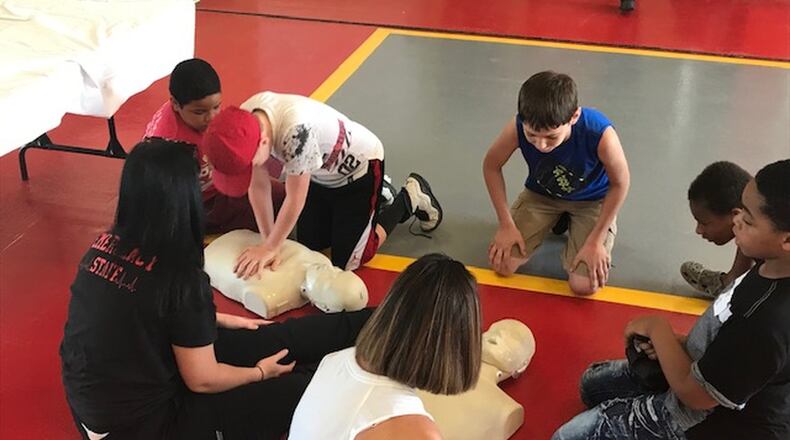There is a 30-day comment period for the 2023 Annual Action Plan that ends on March 24, she said. After that, the budget will be forwarded to U.S. Department of Housing and Urban Development (HUD).
The city is anticipated to receive $675,975 in grants this year with $171,396 earmarked to the six groups, $369,384 to improve the Oakland neighborhood and $135,195 for administration fees.
The seven organizations submitted proposals totaling $279,746 with the Butler County RTA asking for $100,000. While it was no reflection on the transportation service, Muller said the proposal was rejected since only 15% of the grant can be earmarked to public service.
“That’s one of the limitations of these funds,” she told council.
Mayor Nicole Condrey told Muller she was disappointed the city received only seven proposals when numerous non-profits are constantly asking for the city’s financial assistance. She said if the city spent the maximum 20% of the budget allowed on administration the city should do a better job of communicating with organizations.
“I don’t want to see dollars wasted,” Condrey said.
Muller said the city, as required by HUD, placed a legal advertisement in the Journal-News, listed the request on the city’s Facebook page and sent emails explaining the program to about 40 Middletown non-profits.
The city has received funding through the CDBG Program since 1975 and every five years, prepares a Consolidated Plan that lists long-term goals and objectives for CDBG funding within the city.
Additionally, the city prepares a yearly Action Plan that documents where each year’s funding is budgeted by activity.
The city’s goals are to provide down payment assistance (convert renters to homeowners), incentivize work/live households, repairs/rehab for existing homeowners, create competitive housing stock, workforce development, fair housing activities, assistance with youth activities/centers, social services for mental heath and substance treatment, removal of blight, street resurfacing/beautification, and focusing efforts in Low Moderate Income (LMI) resident neighborhoods, according to the staff report.
Local residents have identified a list of nine priorities in the city that can be delineated into the two categories: supports for low‐income families and community revitalization activities.
Here are the nine activities to address identified priority needs in the five-year consolidated plan:
- Distressed and dilapidated housing.
- Poor street conditions.
- Lack of amenities and attractive neighborhood appeal.
- Lack of qualified work force.
- Lack of youth activities.
- Insufficient social services including mental health and substance use disorder treatment.
- Addressing needs of homeless households.
- Ensuring there is appropriate housing for Low Moderate Income households.
- Fair housing activities.
2023 COMMUNITY DEVELOPMENT BLOCK GRANT BUDGET
Public Infrastructure: $369,384. Parks Improvements (Oakland Park) $369,384.
Grants Administration: $135,195. Planning/Program Administration (Community Development Professionals) $135,195.
Public Services: $101,396. Fair Housing (HOME) $12,500, Legal Aid of Greater Cincinnati $14,150, Community Building Institute (Cradle to Career) $35,000, Community Building Institute (workforce development) $39,746.
Housing Revitalization: $70,000. Emergency Repair Program (People Working Cooperatively) $50,000, SELF $20,000.
SOURCE: Community Development Professionals
About the Author

